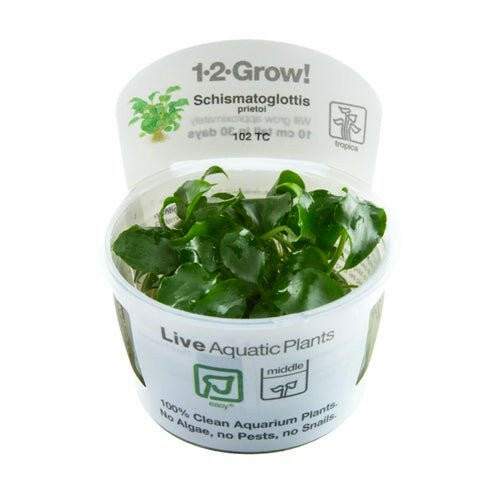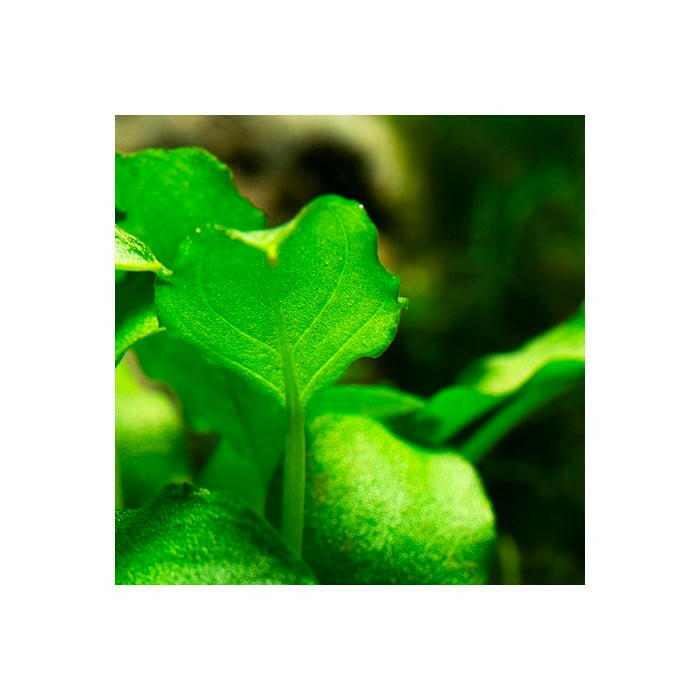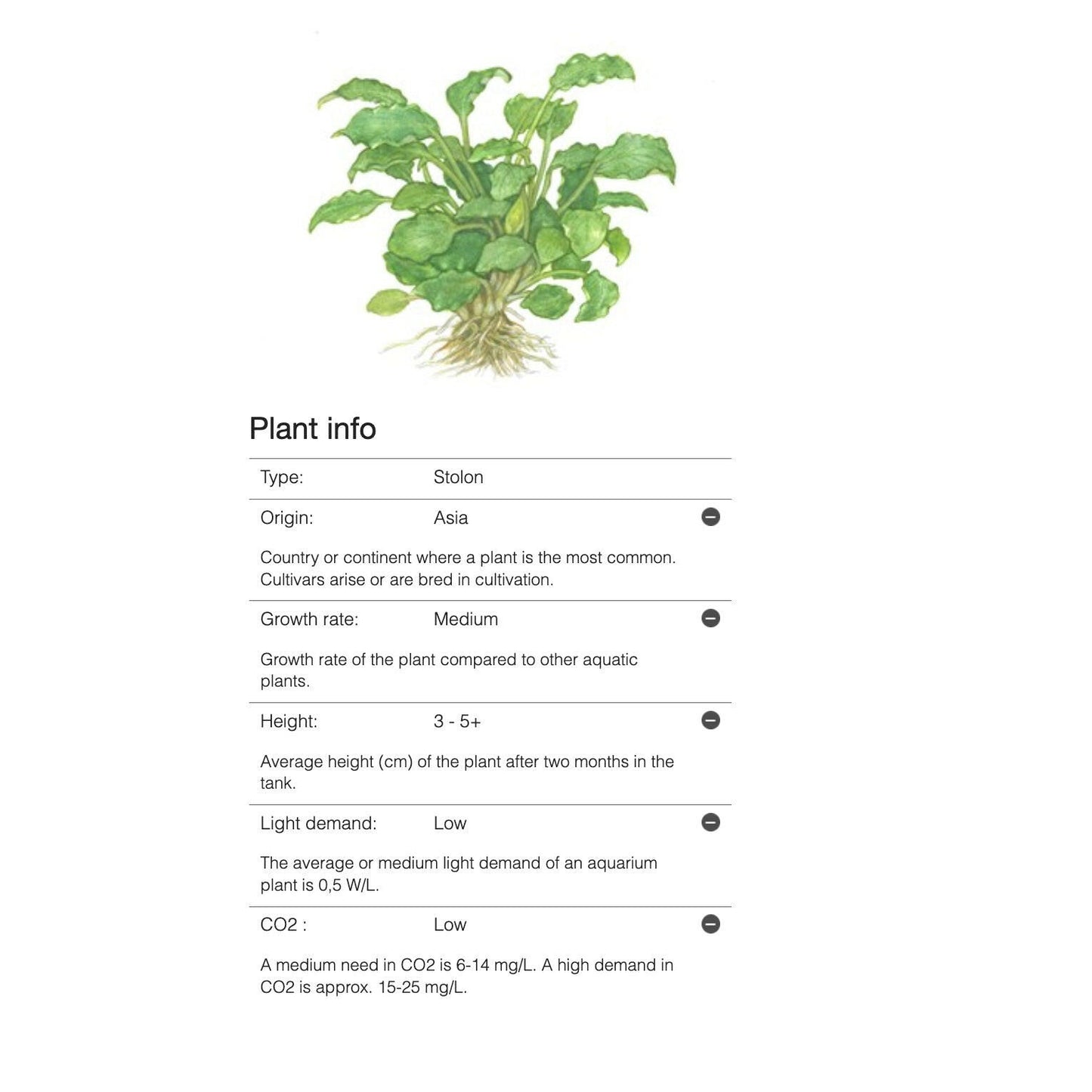Success with your aquarium depends largely on the proper plant choice. In a 1•2•Grow! cup you buy a myriad of plants which can be divided into small portions and cover a larger area. Plants are compact from the start so you will experience a dense and beautiful growth, if you give them the right fertiliser and CO2 from the start! The range is perfect for small and medium sized aquariums, and your patience will be rewarded...
The range offers several mosses and specialties such as Rotala macrandra, Rotala 'Bonsai' and mini versions of traditional varieties such as Alternanthera and Eleocharis.
- Carefully take the plant out of the cup and rinse off the growing media under the tap.
- Split the plant in 6-8 portions using your fingers or sharp scissors (for small foreground plants).
- Plant portions into the substrate using tweezers. Then watch them grow!
It is an undemanding and easy plant, thriving very well in most aquaria, even in very poor light. Schismatoglottis prietoi naturally grows in rivers of the Phillipines, where it often appears in large, dense groups.






